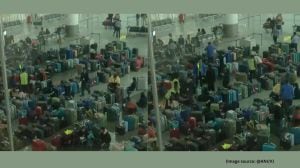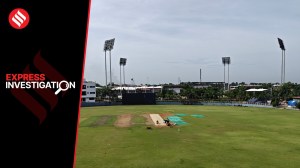Two BSF constables claim they were framed in smuggling case 15 years ago; Delhi HC orders CBI probe
The present case is not just a case of two individuals but a case involving tampering of records of BSF, allegations of smuggling against some BSF officers, and implication of innocent officers, said the bench
 The petitioners alleged that a sub-inspector reached the spot and instructed the two not to disclose the recovery to anyone.
The petitioners alleged that a sub-inspector reached the spot and instructed the two not to disclose the recovery to anyone.The Delhi High Court has directed the Central Bureau of Investigation (CBI) to investigate a case of record tampering in the Border Security Force (BSF) and allegations of smuggling against some BSF officers, who may have falsely implicated innocent colleagues.
The bench of Justices Subramonium Prasad and Saurabh Banerjee, in an order on September 8, directed the CBI to complete the probe in six months.
“… there is sufficient material to come to a prima facie conclusion that there is a need for a greater probe in the present case. The allegations of discrepancies and circumstances surrounding this case give a justifiable doubt to this court that there has been tampering with records… The present case is not just a case of two individuals but a case involving tampering of records of BSF, allegations of smuggling against some BSF officers, and implication of innocent officers by persons who might be actually involved in smuggling at the border,” the court reasoned, while directing the CBI to investigate, instead of the local police.
The case pertains to a 2008 incident brought forth by two BSF constables who were dismissed from service in 2009.
The two petitioners — B Venkataswamy and Tarsem Singh — represented by advocates Surender Singh Hooda and Aditya Hooda, joined the force as constables in 2000. In 2008, when they were posted in West Bengal along the Indo-Bangladesh Border, they apprehended a person carrying about 75 bottles of Phensedyl at a border post.
Phensedyl contains codeine, which is a narcotic substance.
The petitioners alleged that a sub-inspector reached the spot and instructed the two not to disclose the recovery to anyone. According to the two constables, they did not comply and informed a head constable about the recovery.
Venkataswamy had also apprised a senior officer of the incident, who, in turn, had assured him not to worry. However, the two were issued a chargesheet by the BSF in May 2009, accusing them of illegally keeping the 75 bottles of Phensedyl “with intent to cause wrongful gain to themselves”.
The two were jointly tried, convicted, and dismissed from service in May 2009 “for omission prejudicial to the good order and discipline of the force”.
The two then moved the Delhi HC in 2010, alleging they were being framed. They claimed there were procedural irregularities, forgery, and tampering of official records.
After scrutinising the records, the bench observed that it “certainly gives an impression that the submissions advanced by the learned counsel for the petitioners with respect to tampering of official documents is valid,” for which the BSF too had failed “to provide any satisfactory explanation for the glaring discrepancies”.
The observation came after the court was shown two logbook entries, both of the same date related to the same incident — one mentioning the seizure of 75 bottles of the contraband, while the other did not. The court also noticed a difference in handwriting.
“There cannot be two records on the very same date with a discrepancy in the entries. Therefore, this court is of the opinion that this requires much deeper consideration and greater probe,” the bench held.
The bench also raised questions on the genuineness of the proceedings against the two before the Summary Security Force Court (SSFC).
Given the discrepancies in records, “in conjunction with other facts surrounding this case, such as discrepancies in the testimony of the prosecution witnesses, discrepancy in time of the incident, delay in filing of the incident report and non-filing of any SITREP (situation report), it certainly gives rise to justifiable doubts regarding the impartiality and genuineness of the proceedings conducted before the SSFC,” the bench observed.
“The BSF is a… disciplined force. The allegations of the petitioners are that they have been framed by officials who were unhappy with the action of the petitioners in reporting the incident regarding the recovery of Phensedyl bottles. The possibility of tampering with records to teach the petitioners a lesson, therefore, cannot be ruled out. Normally, courts do not question the correctness/veracity of documents placed on record before it, but when tampering is apparent to the naked eye, it is necessary to go into the root of the case,” the court reasoned.







